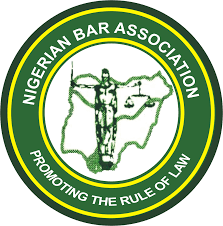The 9 Steps to Land Title Registration in Nigeria & How to Get Started
Land title registration is a fundamental process a purchaser of land must undertake upon acquiring a property or land. The process of land title registration is very important as it secures the purchaser’s interest in the land/property after purchase.
Introduction
Land title registration is a process through which all matters pertaining to ownership, possession or other rights in a land or property are registered with the requisite government agency in order to procure evidence of title, facilitate transactions, and prevent illegal disposal and transfer of rights in a property.
Land title registration in Nigeria also known as perfection of title raises a presumption that the holder of a title deed has title to that land and can pass a legal estate in the land to another party.
Where a purchaser fails or neglects to register or perfect his title to an acquired land, he may be at risk of losing the property to another purchaser who has taken the necessary steps to perfect his title in the same land.
Benefits of Land Title Registration
Where a land title is registered, it has a lot of benefits and advantages which may include;
- Proof of ownership of land : This implies that the bearer of the title to the property could easily establish ownership before any third party or a Judge by producing the duly registered title document which is the Certificate of Occupancy (C of O) or a registered deed of assignment.
- Government Compensation: Where a land title is registered, a title holder is entitled to receive compensation in the event of a public acquisition. Any government acquisition must comply with the law and must be by way of a notice and backed by the payment of prompt and adequate compensation.
- Security: Where a land title is registered, it may serve as security and guard against fraudulent sale and illegal encroachment.
- Safekeeping: Where a land title is registered, a copy is always kept at the Land Registry, so in the event of loss or damage of the original, the title holder could always apply for a certified true copy (CTC) of the title deed.
- Easy transfer of title: Where a land title is registered in Nigeria, this makes the land highly marketable, as there is usually the assurance of easy transfer of title. By this, the value of the property naturally appreciates in comparison with similar properties within the same location.
- Collateral for Loan: A registered title deed can be deposited with a financial institution or lender as proof of ownership of a property as a collateral for loan.
Regulatory Framework for Land Title Registration in Nigeria
The major regulatory framework for land acquisition and registration in Nigeria is the Land Use Act, 1978 the (“ Act “) which vests ownership of lands in the states (except those vested in the Federal Government or its agent) in the Governor while only a statutory or customary right to occupy the land is given to a citizen for a period of 99 years.
Furthermore, the control and management of land is administered through the Land Use and Allocation Committee acting as an advisory committee in transactions affecting land.
It is the requirement of the Act that before a holder of a statutory right of occupancy alienates his right of occupancy or any part thereof by Assignment or any other means, the consent of the President through the Hon. Minister of Housing and Urban Development (for federal owned land) and Governor (for state owned land) must be obtained.
The Land Use Act makes a mandatory provision that the purchase, sale, transfer, or alienation of interest in land must be perfected by stamping, registration of title deeds and obtaining governor’s consent (for state owned land) and the Hon. Minister of Housing and Urban Development (for federal lands) such as lands in the Federal Capital Territory and Lands in certain parts of Ikoyi, Lagos.
In Lagos State, the regulatory framework for registration of title to land is the Lagos State Land Registration Law, 2015 which equally makes it mandatory for any transfer of interest in land be it a sale, lease, or mortgage to be registered in line with the requirement of the law.
The Land Registry Directorate is saddled with the responsibility to store registered documents relating to land, register deeds, asset, vesting deed, court judgment deed of release, issuance of loss of documents, certified true copy (CTC) of documents and conduct of searches.

The steps for land title registration may vary depending on the state. We will discuss below, the steps for land title registration in Lagos State, Nigeria.
Steps for Land Title Registration in Lagos State
- Due diligence must be conducted on any property intended to be purchased. Due diligence is conducted to ascertain that a vendor has a good root of title and that the land is free from any encumbrance. It is usually advised that Solicitors with considerable experience in real estate are tasked with the due diligence instruction. The due diligence must encompass a search at the Lands Registry, Charting at the office of the Surveyor General and check at the Town Planning Department. These various checks serve different purposes to help minimize potential risks.
- After due diligence is conducted and the purchaser is satisfied that the vendor owns the property and has the requisite power to sell, the purchaser may proceed to purchase the property.
- The purchaser upon agreement of a purchase price with the vendor will be required to execute transfer of title documents which may include Property Sale Agreement, Deed of Assignment, Deed of Partition etc. depending on the nature of the purchase. It is important that this part of the property acquisition is handled and or supervised by a Solicitor whose role will include ensuring all documents are adequately drafted to protect the interest of the purchaser and to ensure the land is free from any encumbrance.
- The purchaser will then apply for the Governor’s consent at the Lands Bureau of the state. The process will be accompanied by the requisite documents which usually includes the Deed of Assignment, Survey Plan etc. The purchaser must also show evidence of payments of levies some of which are charting fee, application fee, administrative charges, etc.
- The application is then referred to the office of the Surveyor- General for the charting of the survey plan, confirmation that the land is free from public acquisition and that the coordinates reflected in the survey plan do not go beyond the boundary of the vendor’s property.
- The application is thereafter taken to the Lands Bureau and the Bureau will issue an assessment letter requesting the purchaser to make payments of the consent fee, stamp duty, capital gains tax and registration fee.
- The purchaser who is now the applicant for the governor’s consent makes payments of the above stated fees and forwards the payment receipts to the accounts department of the Lands Bureau.
- The Deed of Assignment will be forwarded to the designated commissioner for endorsement of the portion of the Deed of assignment on behalf of the Governor for the Governor’s consent.
- Upon obtaining the consent, the Deed of assignment will be stamped by the Internal Revenue Service in the case of a state where the transaction is being conducted or the Federal Inland Revenue Service where either the assignor or assignee is a company. In the absence of stamping, the instrument will not be accepted for registration at the Land Registry.
- The stamped Deed of assignment will be finally presented to the Lagos State Lands Registry for registration. Upon registration, the original Deed of assignment will be returned to the applicant. This is the final stage in the perfection or registration process.
Estimated Cost of Land Title Registration in Lagos State
The estimated cost of registration varies for different properties. However, there are statutory fees as stipulated by the Lagos State Lands Bureau.
The statutory fees are as follows:
- Survey Fee – 5% of the Fair Market Value (FMV) of the property.
- Stamp Duty – 0.5% of the FMV
- Consent Fee – 1.5% of the FMV
- Registration Fee – 0.5% of the FMV
These statutory fees are paid via bank draft in the name of the Lagos State Government and receipts will be issued to the applicant.
Estimated Time Frame for Land Title Registration
The estimated timeframe for the process of perfection of title from the stage of application to the last stage of perfecting the title takes a period of 6 – 12 months to conclude if all assessment and required fees are paid as quickly as possible and there are no queries or defects in the file/documents of the applicant.
Conclusion
The process of land title registration in Nigeria or perfection is very fundamental as only a registered title deed can vest legal title over a property.
It is highly recommended and very imperative that a purchaser or an owner of a property diligently ensures that he registers his title deed as this process alone confers on him legal title and protects him against any competing interest.
Berkeley Legal is a dedicated leading full-service top business law firm in Lagos, Nigeria. We provide comprehensive and sophisticated range of specialized and personalized legal services that are designed to meet the various needs of a highly diversified local and international businesses.
If you would like to know more about Land Title Registration, please contact info@berkeleylp.com
The information provided in this article is for general informational purposes only and does not constitute legal advice.







